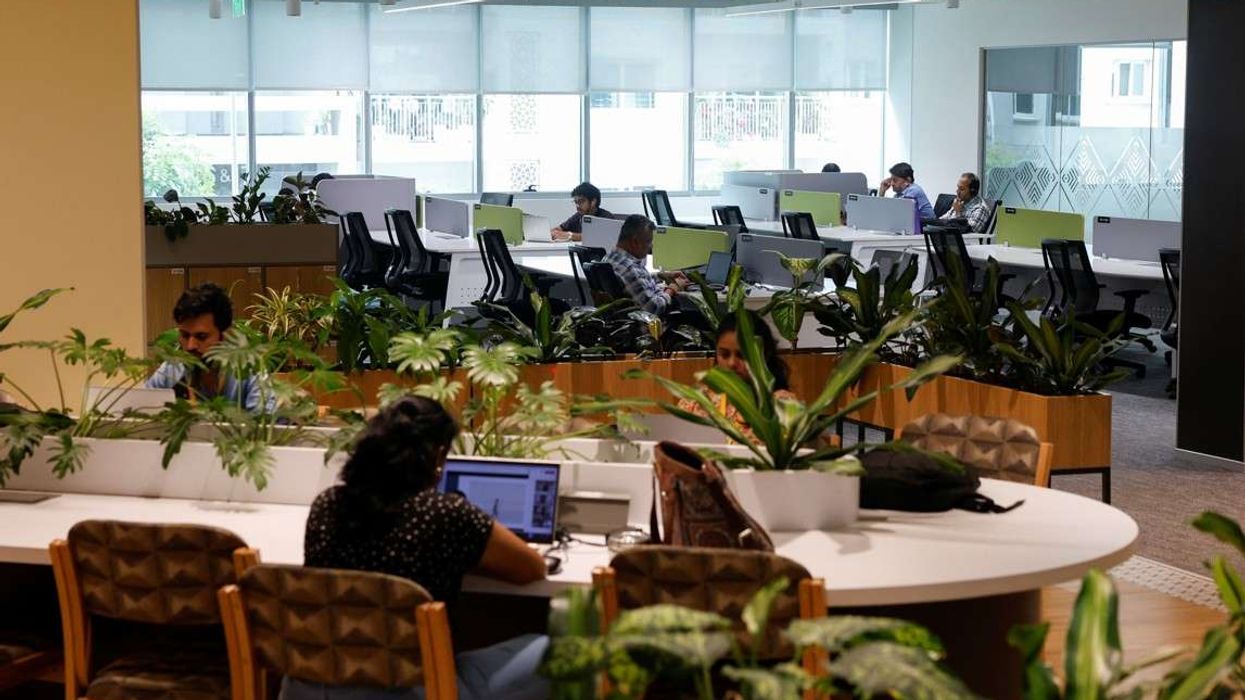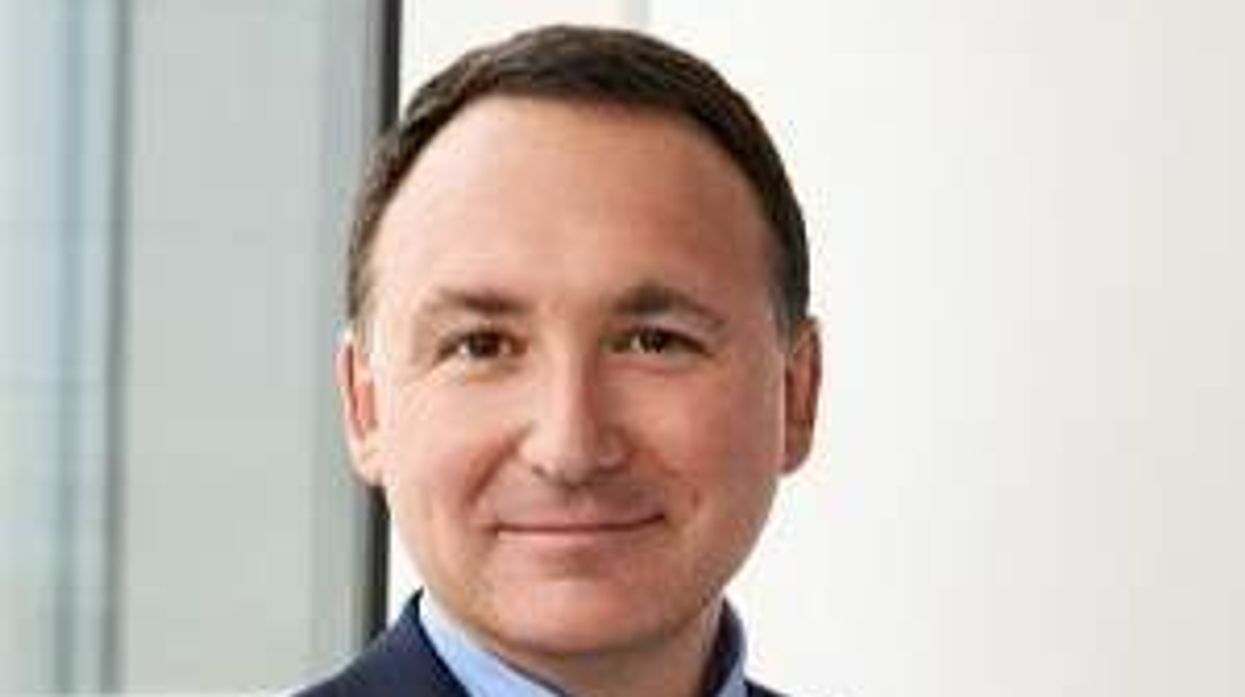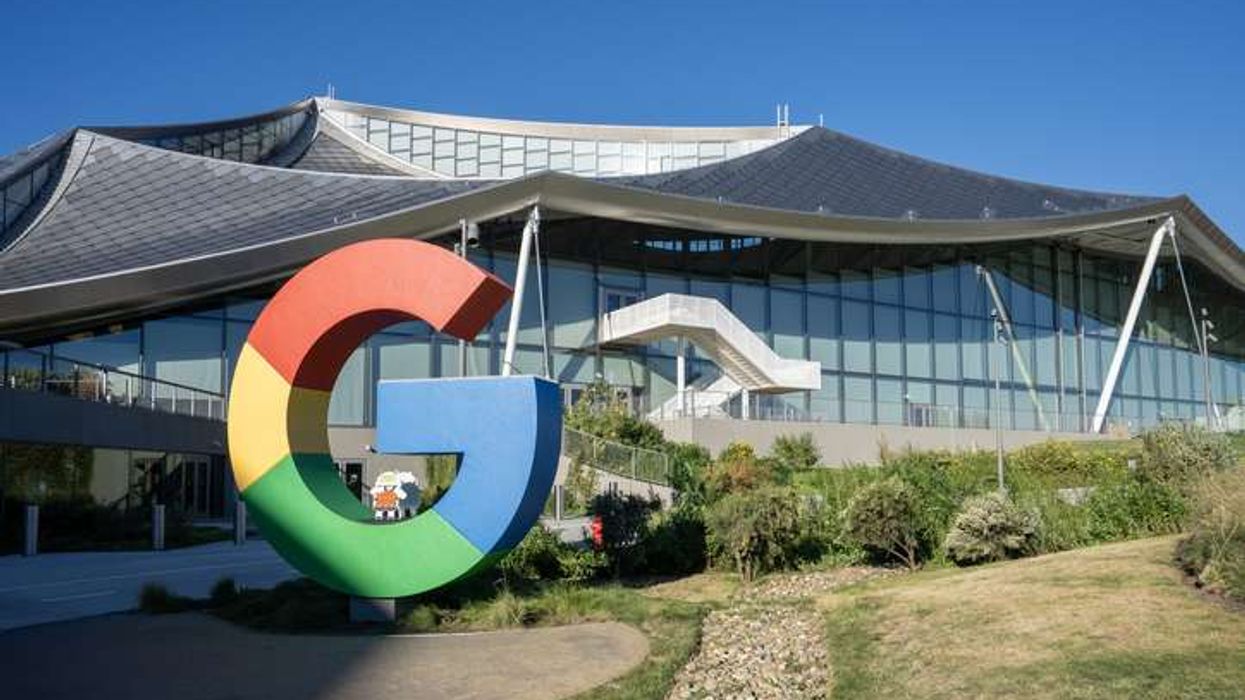A TOP London hotelier has said integrity forms the foundation of his work, stressing the importance of strong moral principles in guiding business decisions.
At the Eastern Eye Property Awards last Thursday (25), Tony Matharu revealed that success comes from staying true to values, taking calculated risks, and seeing opportunities where others see obstacles.
He also spoke about the importance of London to the country’s economy and the difference between first- and secondgeneration entrepreneurs.
Matharu, founder and chairman of Integrity International Group, won the top honour at the annual awards ceremony in London last week.
The British Asian entrepreneur, whose firm acquired some of London’s iconic buildings, said during a masterclass, “If you are true to yourself and true to others, you don’t compromise. You hold on to your moral philosophy. That is integrity.
“You can be flexible in different aspects of your life, but your moral principles should remain steadfast.
“Your values should stay with you – they are your guiding light. It’s not easy to attain, but it is essential. That is why calling my company Integrity International carries great responsibility.
“If everyone in your group, employees, associates, suppliers, understands that, you create a better world.”
Reflecting on his upbringing, Matharu said, “Your domestic environment, school, university, work — all shape your thinking as you age. The early years are critical, and a mother plays a significant part in that.
“My mother instilled values that stick with me to this day. We were like many Asian families. I was born in the UK, but my parents came from Kenya. My father was an engineer and hoped we would choose professions like medicine, law, and accountancy. My mother was more entrepreneurial. We didn’t have a family business, so I guess that inspired me to start one.”
Asked what values are needed both to recognise the potential and to have the courage to commit to ambitious projects, Matharu said, “First and second‑generation immigrants often have a different set of priorities. Typically, particularly for first‑generation immigrants, they are not surrounded by a protective support network from the local population.
“If they are going to succeed, they have to do it themselves. They live and die by their performance and how others view their work, and their achievements are self‑made. This, I believe, gives them resilience and the ability to overcome obstacles and challenges that perhaps third‑ and fourth‑generation immigrants or indigenous populations do not experience.
“It also becomes part of their outlook to look for opportunities. That process requires courage, sacrifice, investment and a willingness to back yourself to bring an idea to fruition.
“Not everybody takes such risks. They have been prepared to fail, sometimes have failed, but got up and tried again. That, I believe, is the essence of these kinds of property acquisitions.”
The businessman added, “You need courage and a feasible plan. You must assess whether there is value to be obtained through investment, secure the right planning permissions, overcome challenges, and seize the opportunity. But above all, you must be prepared to invest time, effort, travel, and money to achieve success.”
Matharu said he “owes a lot to London” as he started and grew his business in the city.
He said, “I think younger people today might have a different view. Particularly after Covid, there is a lot of anxiety about where the world is heading and whether the capital city is fulfilling its potential.
“Yet, London still has the foundation of something exceptional, much like a heritage building that holds all the greatest qualities you might want. It offers culture, heritage, the arts, education, strong systems, and the rule of law, along with opportunities for personal growth.
“Many Londoners in this room would have taken advantage of these opportunities, but it is becoming increasingly difficult. Political choices have, in effect, treated London as though it should be diminished or ignored. That is no longer part of the public discourse, and I think this is dangerous. London and the southeast are the only two areas in the country that contribute more to the Treasury than they receive.
“In purely economic terms, London is the beating heart of the British economy.” He added, “Beyond economics, London’s diversity and the opportunities it offers for visitors and workers alike are unmatched in any city I have been to. It remains a place where obstacles to progression can be removed, allowing people to thrive. Long live London — we must retain it, enhance it, improve it, and restore its vitality. This is the purpose behind the Central London Alliance.
Matharu recalled how the CLA was created to fill a gap.
“In the post‑Covid lockdown world, no one was speaking up for London. In response, I set up this community interest company. Initially, I thought we would need just 50 supporters to join forces to promote London and encourage people to return to workplaces, theatres, green spaces, and cultural life.
“Six years later, the alliance has grown to over 20,000 members, and it continues to connect people and businesses. We now host events such as the London Sports Festival and fashion shows in iconic locations, driving footfall and global attention to London’s heritage.”
Matharu also shared his views on the balance between instinct and data.
The experienced entrepreneur said, “When it comes to decision‑making, I am a strong believer in instinct. It does not come from nowhere - it comes from years of observing, listening and learning. You might not be able to immediately explain why something feels right, but experience tells you when an opportunity has value.”
He cited examples from sport and business where instinct guided success, stressing its continuing importance even in a world which is not embracing artificial intelligence (AI).
Matharu expressed caution about AI, stressing that “intelligence left on its own can be dangerous” and arguing for moral constraints on its use.
He recalled a Cambridge University initiative combining mathematics, theology and computing to explore the ethics of AI, suggesting that moral frameworks should guide its development. Matharu also stressed the need for “integrity and honesty” in political decision‑making. He argued that economic growth should underpin public spending across the country, not just London.
“The good of the country comes from good economic conditions,” he said.
“We need to ensure policies encourage investment, growth and jobs, not disincentivise them.”
Matharu pointed to recent measures affecting the property sector, particularly the removal of business property tax relief, as damaging to long‑term investment.
“This tax disincentivises growth,” he said. “Many family businesses face a heavy tax burden on succession, forcing them to sell or close. That harms employment and reduces investment.” He warned that such measures erode confidence and could undermine the property market and wider economy.
Matharu also reflected on what keeps him awake at night. “It’s the obstacles that stand in the way of long‑term investment and legacy,” he said. “If policies undermine that, it questions the worth of years of hard work and risks. We must encourage those who create value, rather than penalise them.”
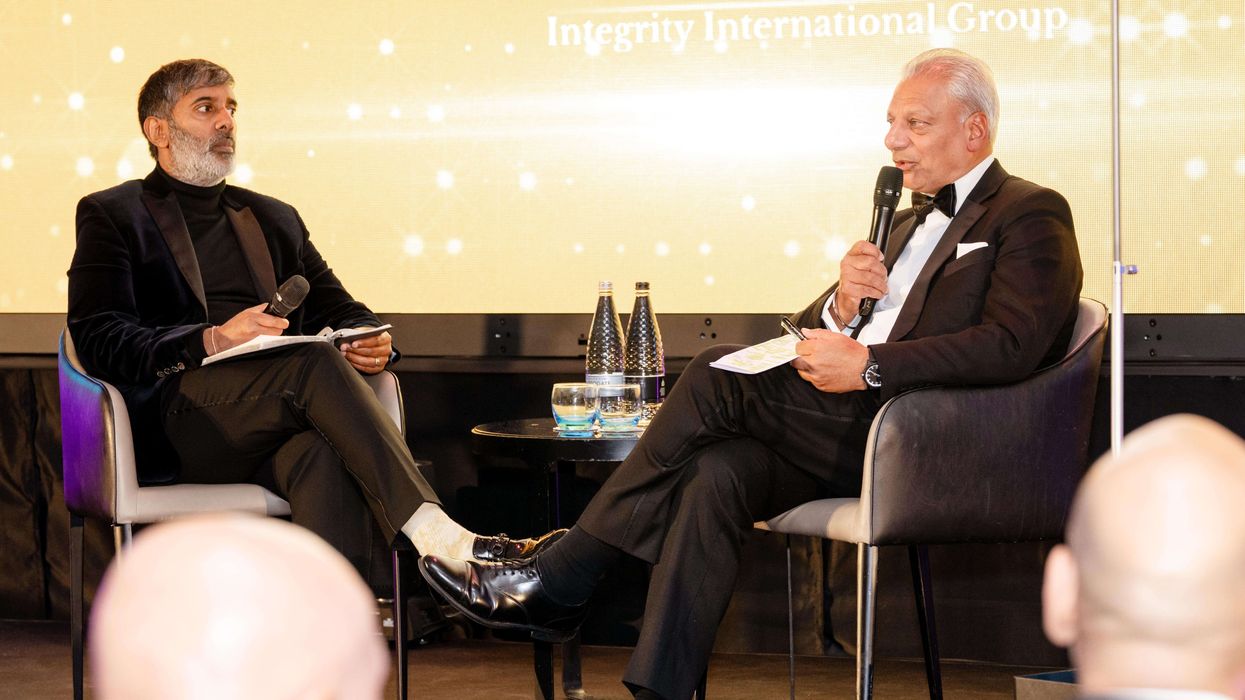
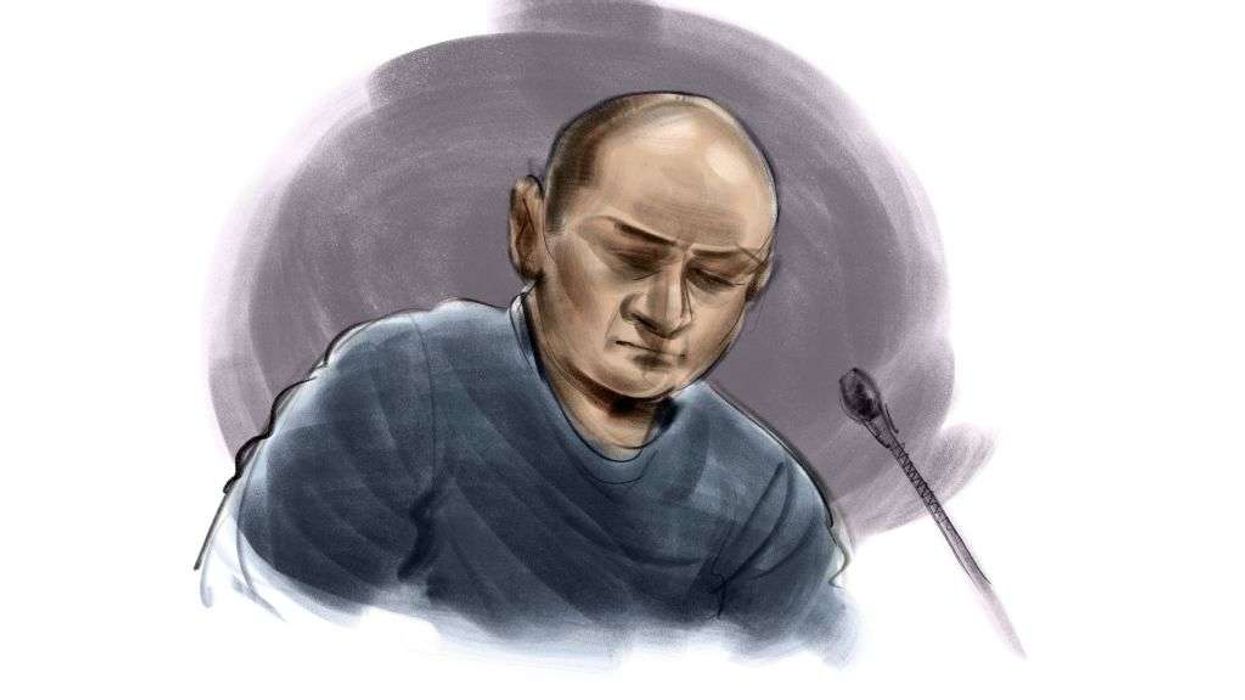
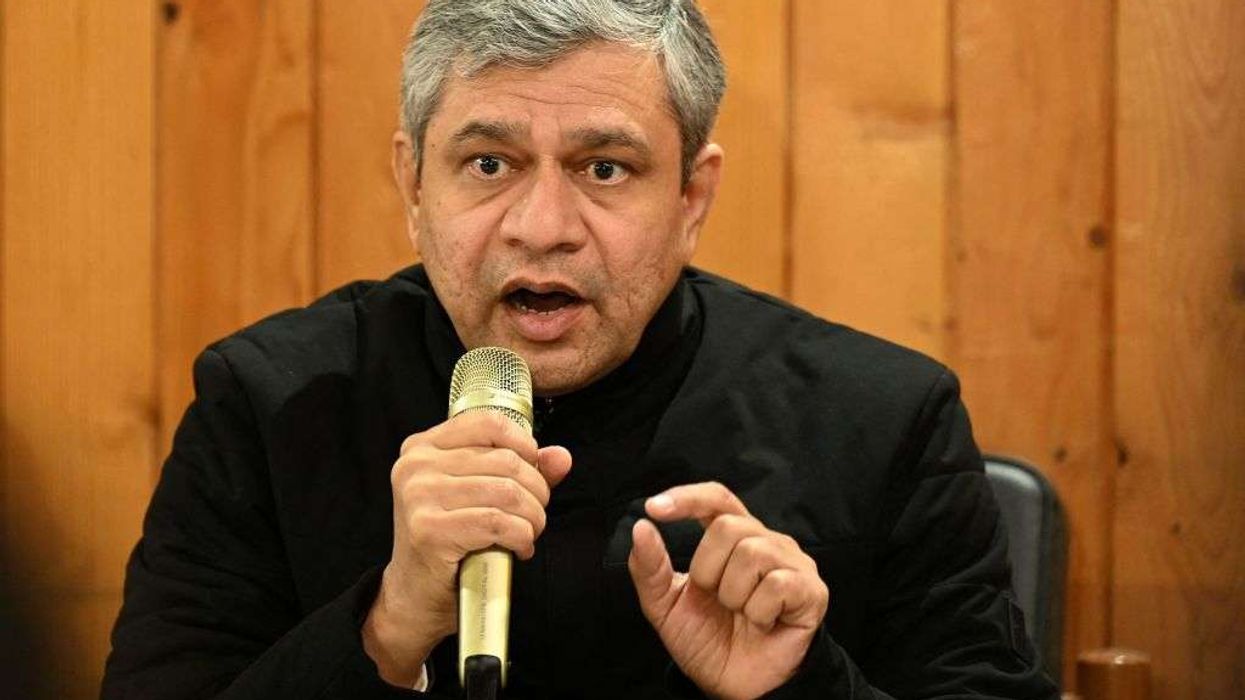
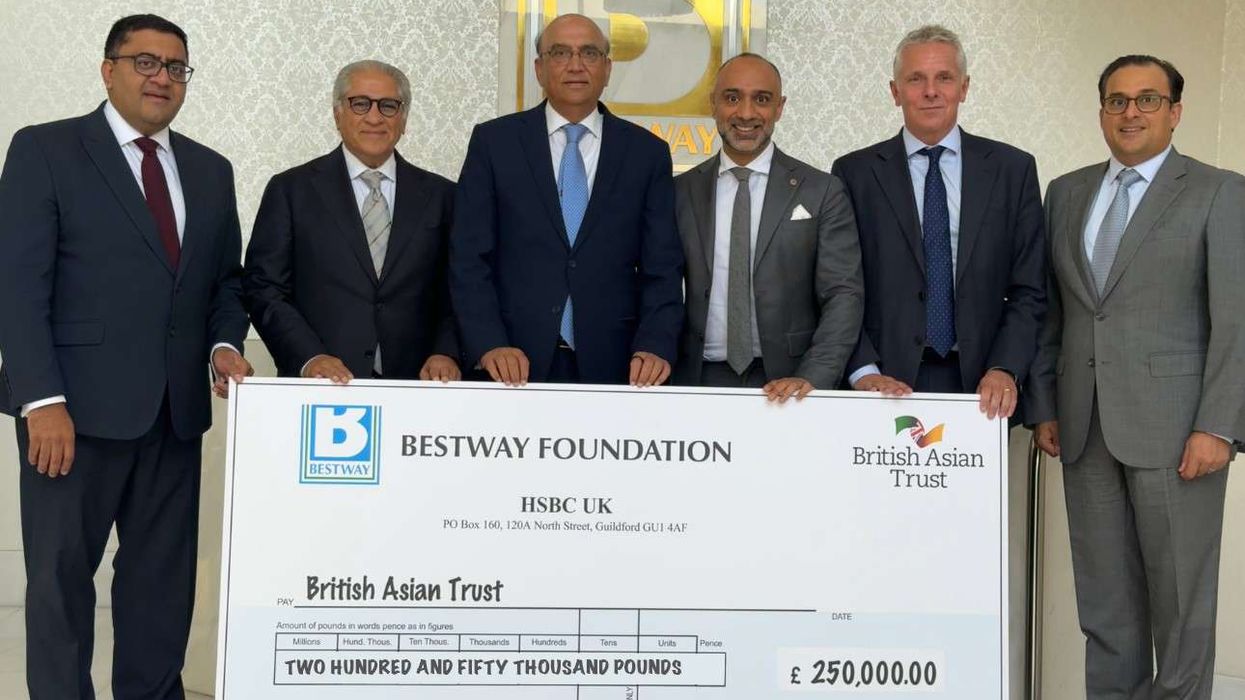
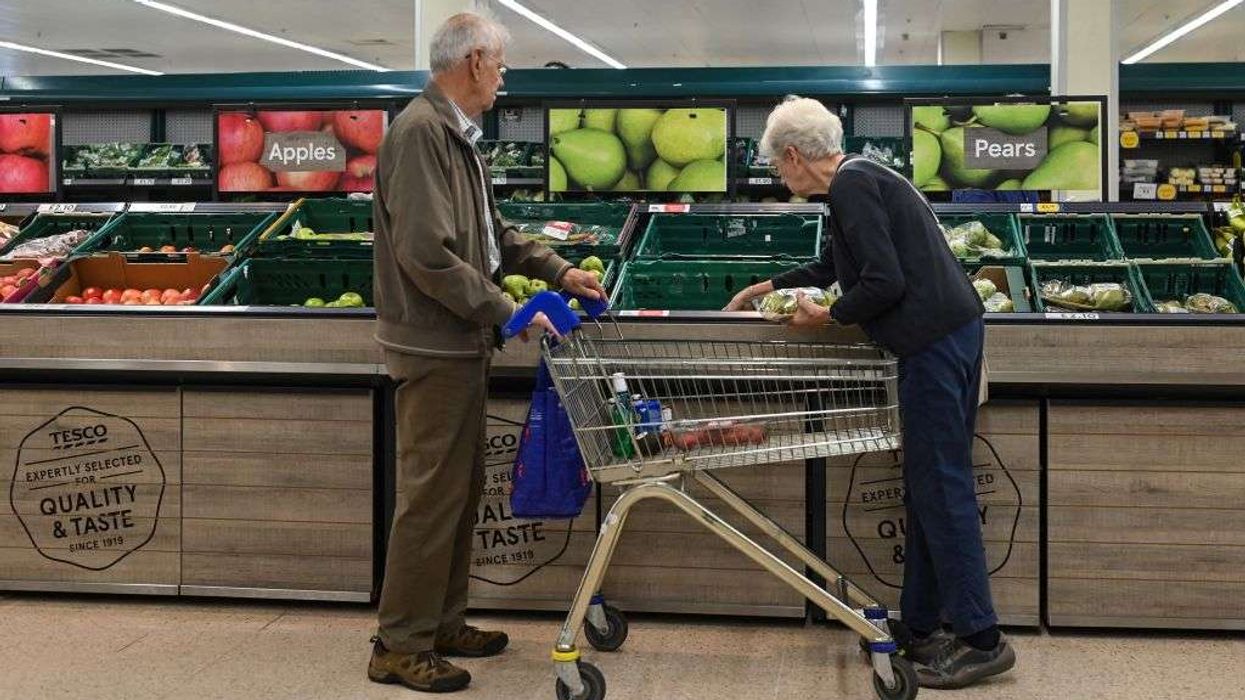
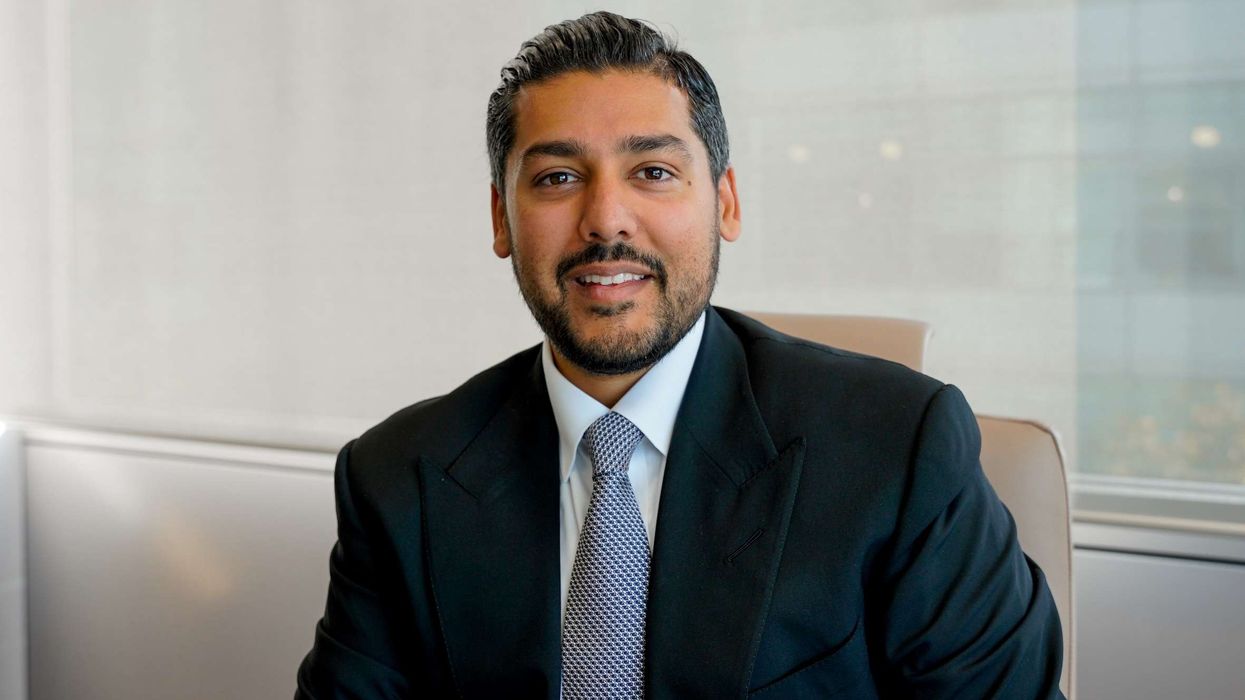



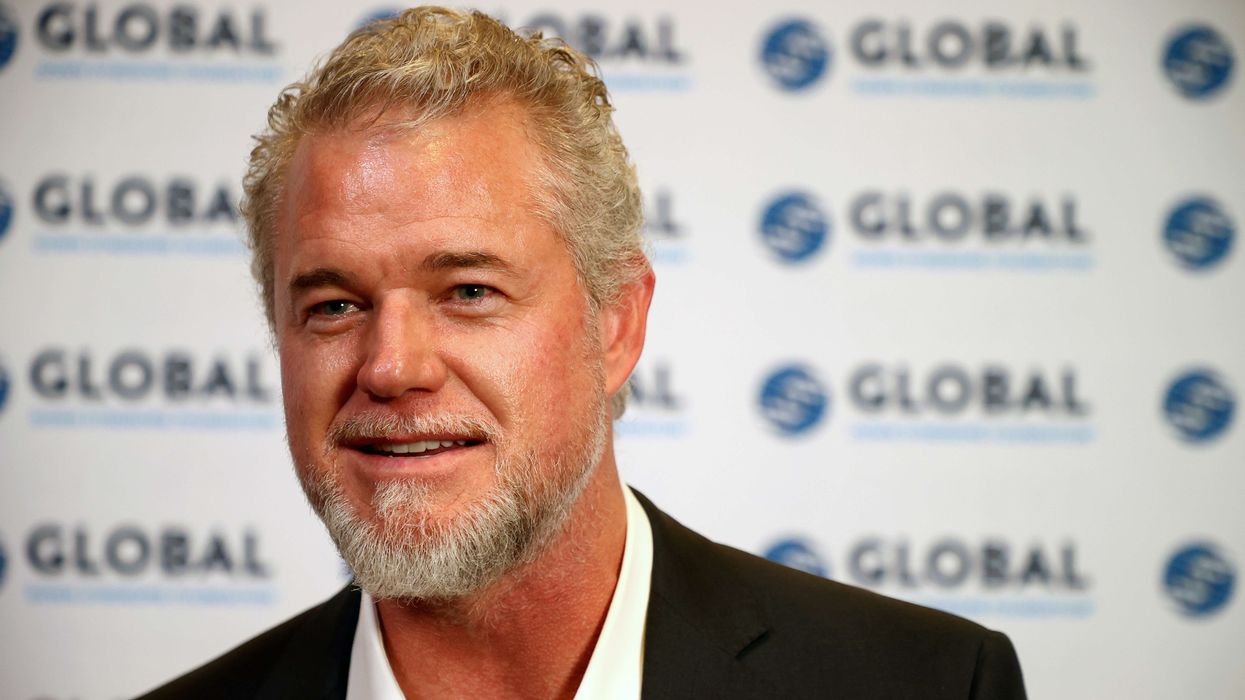


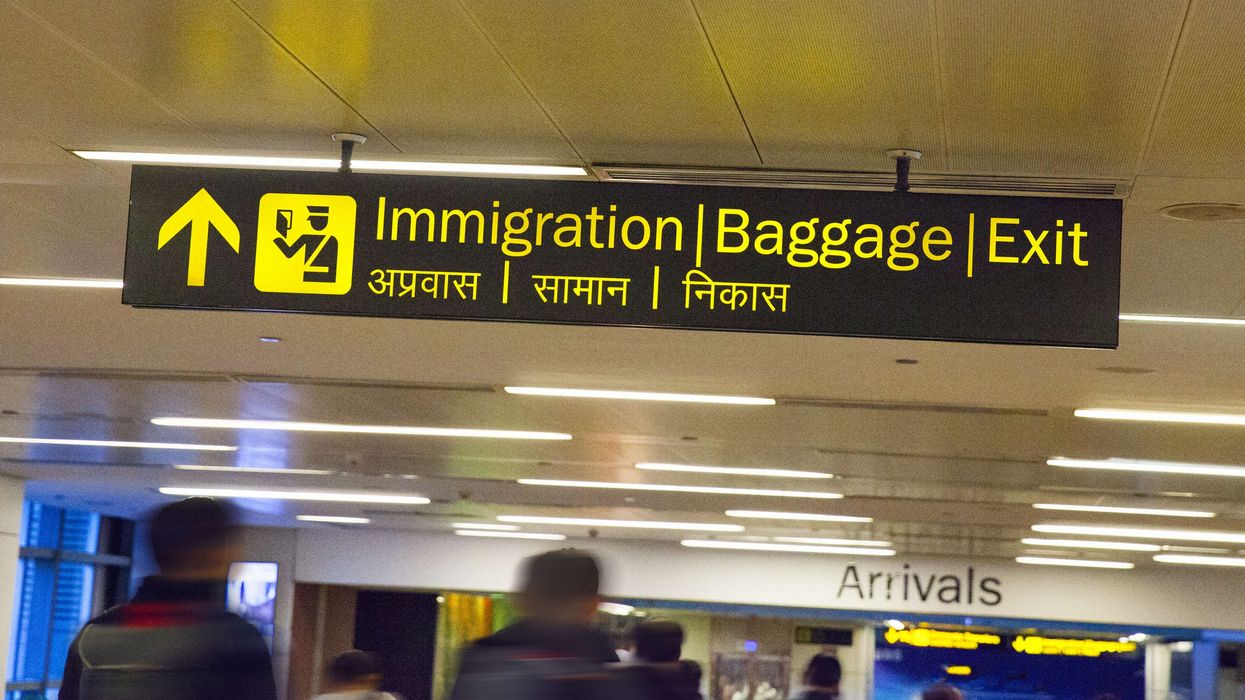


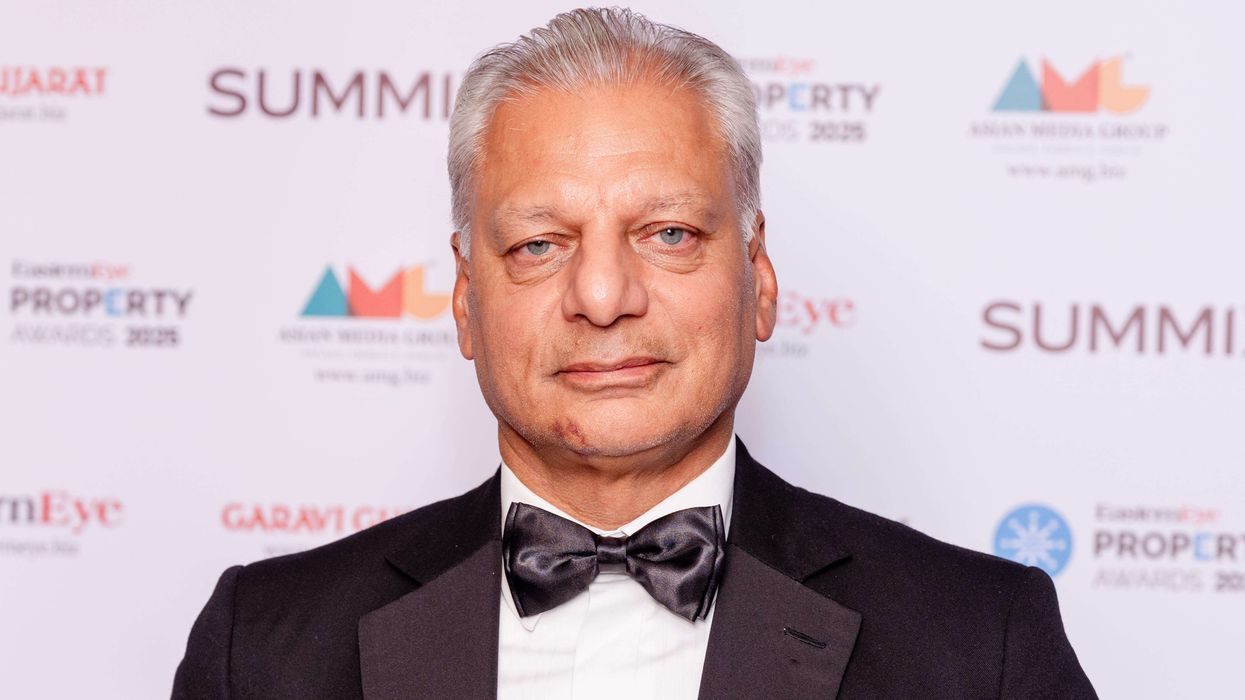
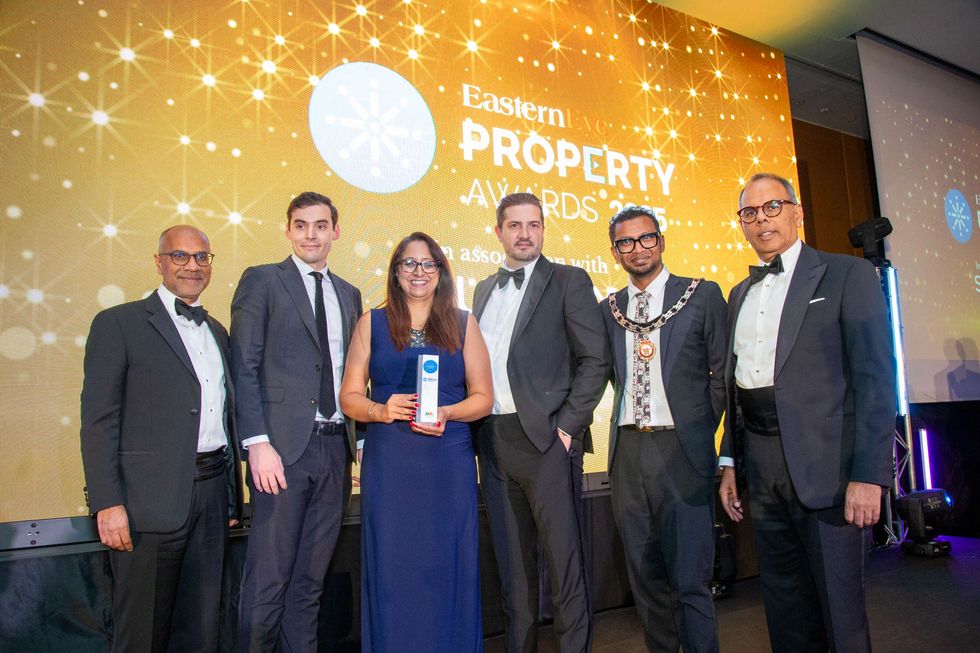 Asian Media Group (AMG) Executive Editor Shailesh Solanki, Giorgio Antonio Aceto, Priya Chauhan, Adam Hunt, councillor Rohitkumar Dasgupta and AMG Group Managing Editor Kalpesh Solanki.
Asian Media Group (AMG) Executive Editor Shailesh Solanki, Giorgio Antonio Aceto, Priya Chauhan, Adam Hunt, councillor Rohitkumar Dasgupta and AMG Group Managing Editor Kalpesh Solanki. 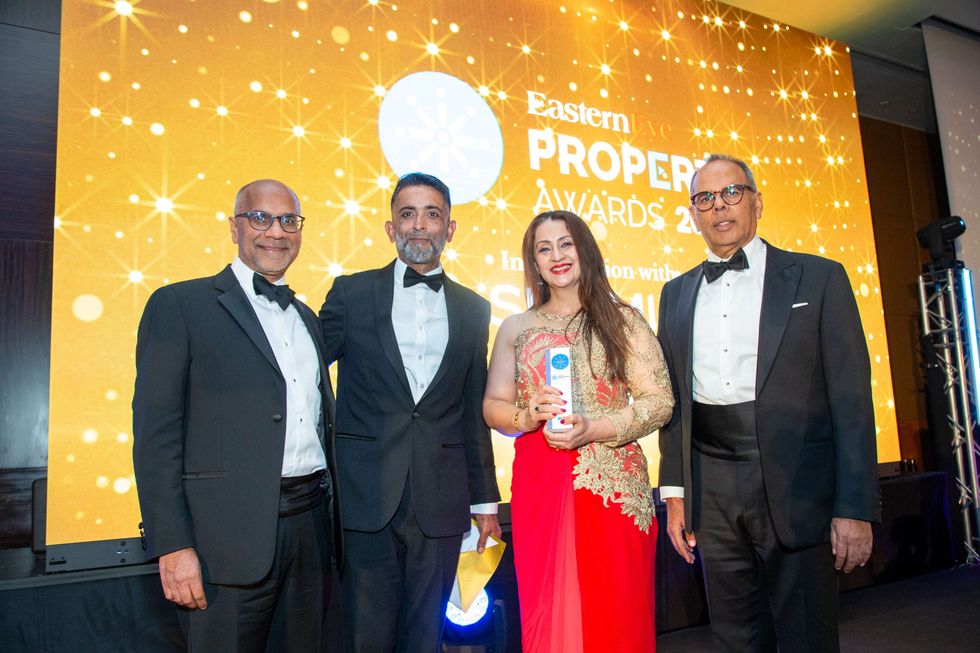 Eastern Eye Entrepreneur of the Year winner Manni Chopra with Shailesh Solanki, councillor Saqib Butt and Kalpesh Solanki
Eastern Eye Entrepreneur of the Year winner Manni Chopra with Shailesh Solanki, councillor Saqib Butt and Kalpesh Solanki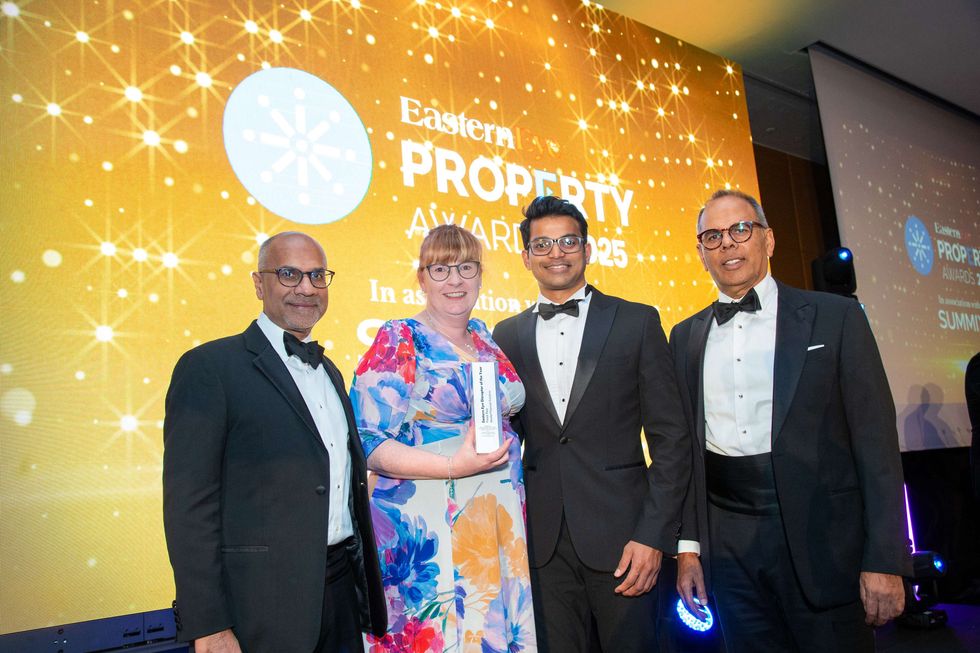 Shailesh Solanki, Karen Rodrigues, chief sales officer, Pawan Gupta ACA, senior financial analyst, Market financial Solutions and Kalpesh Solanki
Shailesh Solanki, Karen Rodrigues, chief sales officer, Pawan Gupta ACA, senior financial analyst, Market financial Solutions and Kalpesh Solanki